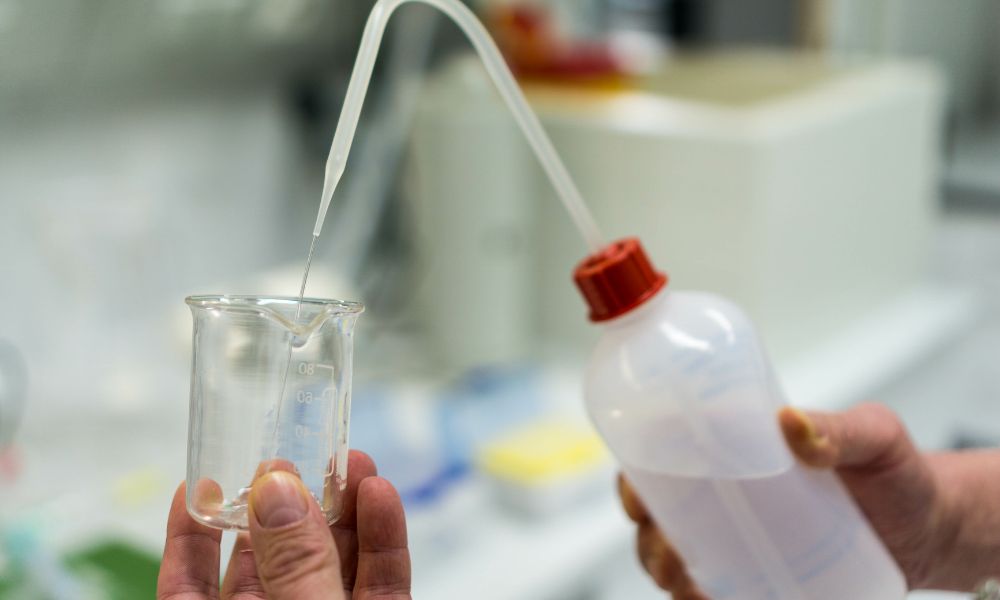Your cart is currently empty!
4 Different Types of Water Used in Laboratories

Water plays a crucial role in laboratory procedures, acting as both a solvent and a reactant in many experiments. Different experiments demand various types of water, ranging from tap water to ultrapure water, each suited for specific applications. The purity levels of water, defined by the absence of contaminants and impurities, can drastically influence experiment outcomes, affecting both the accuracy and reliability of results. As the “universal solvent,” there are many different types of water used in laboratories for various applications. Here are four examples of common varieties.
Distilled Water
Distilled water is the most common type of pure water used for general lab purposes. It is produced through the process of distillation, in which water is boiled and the resulting steam is collected and condensed back into a liquid. This process eliminates impurities, making distilled water a reliable solvent for preparing solutions and for use in equipment that requires water devoid of contaminants.
Type 1/Ultrapure Water
Also known as ultrapure water, Type 1 water is produced using advanced purification methods such as reverse osmosis, deionization, and ultrafiltration. This results in water that is almost free of all contaminants, including organic and inorganic compounds, bacteria, and particulates. Ultra-pure water is crucial for chromatography processes and other analytical techniques where the presence of trace amounts of impurities can affect the results.
Type 2/Laboratory Grade Water
Type 2 water, also known as laboratory-grade water, is commonly used for equipment washing, autoclaves, and filling reagent reservoirs. Though it is not as pure as Type 1 water, it meets the water quality standards for non-critical laboratory tasks. This type of water stems from the combination of various purification methods, including pre-treatment and final filtration stages, ensuring it is suitable for less sensitive applications.
Reagent Grade Water
Reagent-grade water, the highest laboratory water classification for general lab use, is water that meets or exceeds the specifications for analytical and preparative procedures. Scientists and lab technicians use it as buffers, standards, and reagent preparation. The water undergoes multiple distillation processes in a Class I environment to ensure the strictest purity levels.
Each unique water type used in the laboratory is paramount to lab experiment accuracy and precision. From preparing standard solutions with reagent-grade water to following the ultra-purity requirements of chromatography systems, using adequate water types ensures reliable results and prolongs laboratory equipment longevity. It’s imperative for laboratory staff to be well-informed and conscientious about water quality, as it plays a crucial role in laboratory applications and experiments.
If you’re looking for a supplier of laboratory-grade chemicals, solvents, and more, browse Post Apple Scientific today for organic solvent wholesale supplies. We carry laboratory-grade water and other solvents to ensure accuracy and reliability in all your experiments.
Leave a Reply